Speakers

Adrian Bowyer holds a first degree and a PhD in engineering from Imperial College. He was an academic engineer and mathematician at the University of Bath for 35 years, from where he retired in 2012 to become a director of RepRap Professional Ltd. His areas of research are geometric modelling and geometric computing in general (he is one of the authors of the Bowyer-Watson algorithm for Voronoi diagrams), the application of computers to manufacturing, and biomimetics. He is the author of about one hundred papers and books on many different aspects of engineering and mathematics. In 2004 he created RepRap – humanity’s first self-replicating general-purpose manufacturing machine.RepRap Professional Ltd has sold thousands of RepRap machines worldwide. It is one of the best-known and most trusted suppliers in the market, and is devoted to driving RepRap technology forward by research and improved design. RepRap Professional Ltd is an entirely open-source company, and all its designs, software and documentation are freely available to everyone.

Allison Burtch creates liberation technology. She recently made the Internet Illuminator – a browser add-on that clarifies corporate relationships, a log jammer – creating a safe space in nature, and the Dumb Store – a mobile app store for dumbphones. She co-organized Prism BreakUp at Eyebeam Art & Technology Center and the Drones and Aerial Robotics Conference at New York University. Previously, Allison was the editor of the Occupied Wall Street Journal, a six-edition print publication which was translated into six languages and distributed globally. Allison has a master’s degree from NYU’s Interactive Telecommunications Program.
Twitter: @irl
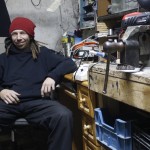
Albertas Mickėnas is a community builder and open source evangelist, co-founder of Technarium hackerspace in Vilnius Lithuania. After a decade of navigating the web startup landscape he got bored and currently leads a nomadic lifestyle exploring possibilities in independent open hardware business and designing open source electronics for semi-industrial use.

Ammar Halabi is currently doing research on the use of online social tools for supporting communication and collaboration within local communities in Syria. He has been involved with Wikilogia, which is a community that promotes modern internet technologies to the local community inside Syria with to support collaboration, sharing and entrepreneurship community. Ammar will be speaking on behalf Yahya who is a co-founder at Atadiat; a startup company for providing products and services to facilitate hardware development. Atadiat Is the among the first commercial startups in the Arab world that adopt the spirit of open hardware. Over the past two years, Yahya has been a volunteer in Wikilogia where he organized and participated in numerous workshops and talks around open hardware and electronics. Yahya was also involved in collaborative activities in the Arab world, which included promoting OSHW thinking, founding local OSHW groups, translating content around electronics to Arabic, and providing technical support for newcomers.
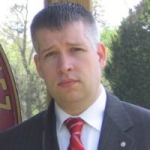
Ari Douglas had a career in Information Security before the Electronic Frontier Foundation inspired him to pursue a law career. Graduating with a concentration in Intellectual Property, from the Benjamin N. Cardozo School of Law; Ari’s interests run the gamut within the amorphous field of “Technology Law.” His overarching goal for entering the legal profession was to serve as someone who can communicate complex technical material to legal policy-makers. While at MakerBot Industries, Ari oversaw all aspects of MakerBot’s Intellectual Property strategy; including advising senior management on Open Source issues. Currently he is collaborating with Creative Commons on a research project and whitepaper regarding Open Source Hardware licensing options.

Becky Stern is a DIY guru and director of wearable electronics at Adafruit. Every week she makes a new do-it-yourself craft+tech project tutorial & video, and hosts “Wearable Electronics with Becky Stern”, a weekly live show on YouTube. She was five years old when she first wielded a video camera, cloned her first Beanie Baby at age eight, and has been combining textiles with electronics since 2005. Becky studied at Parsons The New School for Design and Arizona State University and teaches at School of Visual Arts’ Products of Design grad program. She is a member of the Brooklyn art combine Madagascar Institute and Free Art & Technology (FAT) Lab.
Twitter: @bekathwia

Benjamin Tincq is a peer-to-peer strategist and co-founder of OuiShare: a think-tank, do-tank and global community with the mission is to build and nurture a collaborative society. Benjamin’s research work primarily focuses on systemic (socio/economic) change brought about by the peer-to-peer model, co-operative governance, and the new industrial revolution driven by open source and distributed manufacturing.
Twitter: @btincq
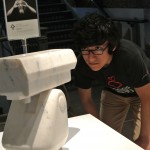
David Huerta is the lead developer at the Brooklyn Museum, the coolest museum in New York. By night, he helps organize Cryptoparties, local teach-in sessions which bring technologists and everyone else together to learn how to protect their online privacy. Before arriving in New York, he dropped out of Arizona State University and was one of the founding members for HeatSync Labs, an Arizona hackerspace which brings makers, hackers, and the occasional futurist together to build things and teach others how to do the same.
Twitter: @huertanix

David Lang is a co-founder of OpenROV, makers of low-cost underwater robots, and OpenExplorer, a community of citizen explorers. He is the author of Zero to Maker and writes for MAKE: Magazine. He was a 2013 TED Fellow. He lives on a sailboat in the San Francisco Bay.
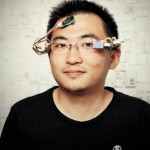
Eric Pan, founder and CEO of Seeed Studio, life long maker and biker. He is trained as EE with projects about Electronics, Embedded System, Robotics. After graduation, he worked in Intel as chipsets product engineer on quality control and NPI, then took various job including international trading and sourcing.He established Seeed Studio since 2008, providing open hardware modules and service to help makers turn ideas into products. He also created ChaiHuo hackerspace in Shenzhen, co-founded the hardware accelerator HAXLR8R, and introduced the first Mini Maker Faire to China. With all the works done to accelerate small scale hardware innovators, he has been selected as cover page by Forbes China as 30 young entrepreneurs under 30.
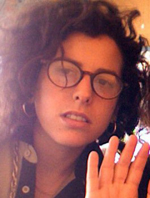
Gabriella Levine is a creative technologist, interactive artist and open-source hardware designer interested in the relationship between technology and ecology. She studied Biology and Piano at Cornell University and Oberlin College, then worked doing Cancer Research at Albert Einstein College of Medicine before abandoning the lab for the outdoors to become a wildland fire fighter based in Oregon. She holds a Masters degree in Design and Technology from ITP, Tisch School of the Arts, NYU. She creates sculptural and robotic works that mimic environmental phenomena and animal behavior. She is passionate about biomimetic robots, PCB’s, electromechanical actuation, wireless sensor networks, and coding. She is the COO of Protei Inc, manufacturing robotic biomimetic sailboats. She’s also president of Open Source Hardware Association.

Gawin Dapper (CTO) will be presenting the story of Phonebloks an idea that grew into a movement for a modular and sustainable mobile phone. Gawin has a passion for people, technologies, design and simplicity. He loves open development, sharing and being outdoors.
Twitter:@gawin

Hagit Keysar’s work brings together theory, activism and art practices, she is currently a PhD candidate at the Politics and Government department in Ben Gurion University, Israel, and since 2011 she takes part in the Public Lab’s community of practitioners. Hagit’s research concerns open-source, citizen-driven map-making technologies in Jerusalem. One piece at a time, she explores the political implications of collaborative technologies and do-it-yourself practices in spaces of conflict and civil inequality. Through long-term collaborative work with residents in the city she seeks to develop tools-in-context that would intervene in the shaping of our geographic imaginary, engaging people in exposing the invisible through critical seeing and doing. Hagit holds a Masters degree in Visual Anthropology from the University of Manchester (UK) and a BA in Fine Arts from the Bezalel Academy for Arts and Design, Jerusalem.

Hannah Stewart is a Phd researcher with the Creative Exchange, an AHRC knowledge exchange hub in Lancaster University. Her background is within the digital and cultural industries, where she has a profile both as a maker and as a business director. As an academic her interests lies in the areas of open-source communities of practice and how these exist outside the traditional market paradigm. Trained in both traditional crafts and machine programming, this span of interests and corporate empathy cross-pollinates her research and academic practice.

Jason Kridner is a software architecture manager for embedded processors at Texas Instruments (TI). Kridner is also the co-founder of BeagleBoard.org, where he has helped create open-source development tools such as BeagleBone Black, BeagleBone, BeagleBoard and BeagleBoard-xM. During his 20-year tenure with TI, Kridner has become an active leader in the open source community. He has engaged audiences at a variety of industry and hardware and software developer shows, including Maker Faire, Embedded Linux Conference, Android Builders Summit, OSCON, CES, Design West, Collaboration Summit and Design East.

Jon Nordby is an electronics engineer specialized in open source and embedded software. He has consulted for several companies on embedded Linux, and was part of the team that created the Nokia N9; their last Linux phone. Currently he develops interactive tools and programming models that harness our capability for visual thinking and explorative learning, to make creating & hacking electronic devices more accessible and rewarding. Jon is as an active member of the Bitraf hackerspace in Oslo, and works for stealth startup The Grid.
Twitter: @jononor
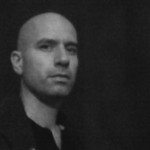
Jerome Saint-Clair is an artist and the guy running the Graffiti Research Lab France. His work covers a large spectrum including net-art, generative art, Internet related pieces, interactive installations, urban hacking, music/sound, all using open-source software and hardware.
Twitter: @_01010101
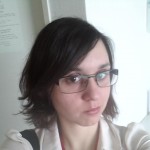
Laura Lospennato is a graduate of the Industrial Design program of the University of Buenos Aires, with the specialization in Management of Design completed in Tokyo. She is in charge of the Design Thinking program offered by the Government of the City of Buenos Aires as part of the initiative to provide open courses in Entrepreneurship for the community. She also teaches Design Thinking in a graduate level Entpreneurship course at the University of Buenos Aires. In 2008, she co-founded a freelance design studio Grupo Alaska, currently the leading Open Hardware industrial design studio in Buenos Aires. Her current work focuses on closing the gap between human-centered design and open hardware. She is also part of the team of TEDxRioDeLaPlata, one of the largest TED events in Latin America.
Twitter: @alfalala

Liat Brix-Etgar is an architect, researcher and lecturer. She is the head and the initiator of “Civil Architecture” Research Unit in the Department of Architecture in Bezalel Academy for Arts and Design, Jerusalem. The unit interlaces design studio, political theory, planning and activism. It seeks to develop collaborative, open and deeply inclusive civil infrastructure, capacities and practices that would push towards democratizing planning processes. Liat received her B.Arch degree from the Bezalel Academy in Jerusalem and her M.A in philosophy (summa cum lauda) from the Tel Aviv University where she wrote her thesis about “The Spatial-Political Lexicon of Jean Luc Nancy”. She is an architect and associate in Tehiru Group in Tel Aviv.

Madeline Gannon is a Researcher / Designer / Educator whose work merges disciplinary knowledge from architecture, robotics, computer science, human-computer interaction, and design. Her research investigates digital-to-analog feedback loops in the context of craft, tectonics, aesthetics, and interaction, and seeks the edges of digital creativity. Gannon is currently pursuing a PhD in Computational Design from Carnegie Mellon University. She also holds a Masters of Science of Computational Design from Carnegie Mellon University, and Masters of Architecture from Florida International University.

Micah Elizabeth Scott has been doing unconventional things with technology for her whole life, often exploring the boundaries between hardware and software. She’s built satellites, robots, virtual machines, graphics drivers, CPU emulators, networking stacks, USB controllers, reverse engineering tools, and pretty much everything in between.Recently she’s been exploring the interactions between technology and art. Her current work explores light, perception, and human interconnectedness. Her interests include interactive sculpture, control loops, emergent behavior, unconventional human interfaces, therapeutic art, abstract impressionism, and using technology to help illuminate what makes us human. Twitter @scanlime

Nadya Peek is a PhD student at the MIT Center for Bits and Atoms, where they work at the intersection between physical science and digital science. Nadya Peek works on unconventional digital fabrication tools, small scale automation, networked control systems, and advanced manufacturing. Nadya Peek is also an active member of the fablab community, working on making digital fabrication more accessible with better cad/cam tools and developing open source (hardware) machines and control systems. The machines from the machines that make project are designed to be made using the tools available in fablabs, helping users take digital fabrication home.

Nick Ierodiaconou is the co-designer of the TED Prize winning WikiHouse open source construction standard and Co-Founder and Lead Designer of the FabHub platform, Nick is also a qualified architect and designer with 00:/ (zero zero).
Twitter: @nick_diaconou

Phoenix Perry is an Adjunct Professor at NYU teaching Gaming, Design and Embodiment at Poly, ITP and Steinhardt. Perry’s creative work spans a large range of disciplines including drawing, generative art, video, games, interfaces and sound. Her projects have been seen worldwide at venues and festivals including Come out and Play, Maker Faire at the New York Hall of Science, Lincoln Center, LMCC, Transmediale, Yerba Buena Center for the Arts, LAMCA, Harvest Works, Babycastles, World Science Fair, European Media Arts F estival, GenArt, Seoul Film Festival and Harvestworks. In 2011 she co-authored the book, Meet the Kinect with Sean Kean and Johnathan Hall.
Twitter: @phoenixperry
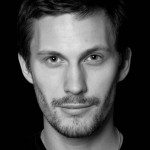
Tristan Copley Smith is a visual storyteller and organizer working in open source, government transparency, and sharing economy movements. Tristan helps spread disruptive ideas, fund projects, and cultivate productive communities. He is co-founder of the Open Source Beehives project and Communications Director at the Open Tech Collaborative.
Twitter: @trizcs
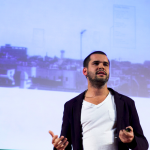
Tomas Diez is director of the FAB City project at the Institute for Advanced Architecture of Catalonia (IAAC), one of the initiators of the Fab Lab Barcelona project, and PhD researcher at University College of London. He is co-founder of the Smart Citizen project and StudioP52 both in Barcelona, and is the co-chair of the FAB10. His research interests relate to the use of digital fabrication tools to transform the reality, and how the use of new technologies can change the way people consume, produce and relate with each other in cities.
Twitter: @tomasdiez

Yasmin Elayat is a creative technologist, interaction designer, and new media artist whose passion is at the intersection of arts and technology. Her work seeks to push the boundaries of immersive experiences, ranging from interactive installations for physical spaces, video installations, and interactive documentaries for the web. Yasmin is the Co-Creator of 18 Days In Egypt: A Participatory Interactive Documentary Project about the Egyptian Revolution.The project was awarded the Tribeca New Media Fund grantand an Honorary Mention in the Digital Communities Category of Ars Electronica 2012, was selected by the Sundance Institute New Frontier Lab, and recently named one the Moments of Innovation in Participatory Documentary by MIT Open Documentary Lab &IDFA DocLab. The project led to the establishment of a citizen-journalism incubation program called The Egypt Journalism Project in 2013. Yasmin is also the co-founder of GroupStream, a visual, group storytelling platform. Yasmin is a member of OpenLabEgypt, a media art collective in Cairo that promotes open source technology and culture of collaboration. In 2014, Yasmin has been nominated as one of GOOD Magazine’s GOOD 100, an “issue dedicated to showcasing 100 people who are pushing the world forward in inventive and inspiring ways.”
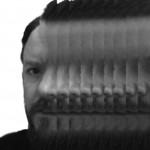
Zack Jacobson-Weaver is currently a PhD at Colorado University’s ATLAS Institute asking, “How can open-source empower every willing to teacher become a ‘public school’?”. He explores the true, grassroots maker movement and its utilization of open-source hardware and software as the catalyst for anti-standardized, anti-disciplinary post-public education. Most recently, he taught digital fabrication and interaction design at the School of Architecture, Carnegie Mellon University in Pittsburgh, USA. While there as part of the ‘Human-Machine Virtuosity’ research group in robotic and interactive fabrication, Zack applied open-source sensibility to the development of a ‘Universal Peripheral Adaptor’, to encourage collaboration and open tools within this small community. Zack is a graduate of Carnegie Mellon’s Master of Tangible Interaction Design and the University of Michigan School of Art and Design.
John Dimatos
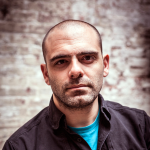
John Dimatos is Partnerships lead for the Design and Technology categories at Kickstarter. Previously he was head of applications at MakerBot Industries where he oversaw the launch of the original Replicator, the Soho retail store, and the 3D photobooth. John has previously developed a disaster simulation game for UNICEF, sold oriental rugs, and graduated from NYU’s ITP program in 2009.